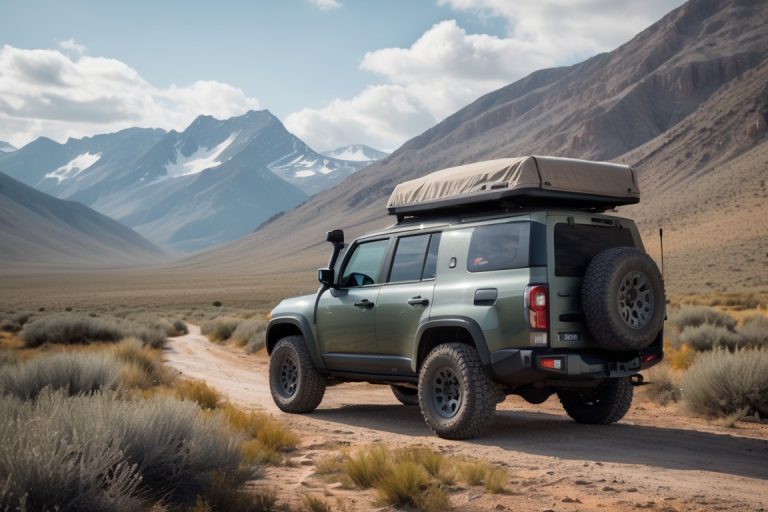In recent years, a growing number of adventure-seekers have traded hotel rooms for rooftop tents, city commutes for remote trails, and predictable vacations for spontaneous exploration. This shift represents more than a trend—it’s a lifestyle. Welcome to the world of overlanding.
At its core, overlanding is about self-reliant travel to remote destinations, where the journey itself is the goal. It’s a blend of off-road exploration, camping, and long-distance travel. As this lifestyle gains momentum, it’s reshaping how people think about vehicles—turning them into mobile homes, survival tools, and companions for the road less traveled.
If you’re new to overlanding or curious about getting started, this article breaks down what overlanding means, what vehicles are best suited for it, and how to modify or prepare your own vehicle for a life on the road.
What is Overlanding?
Overlanding is about more than just getting from point A to B. It emphasizes long-distance, self-sustained travel through challenging terrain, often without the expectation of finding amenities or paved roads along the way. Unlike traditional off-roading, which might involve short, adrenaline-fueled trips, overlanding often spans days, weeks, or even months.
It’s about freedom, exploration, and self-sufficiency. You may be crossing deserts, mountains, or forests—all while carrying your own food, water, tools, and shelter.
Choosing the Right Vehicle for Overlanding
Not every car can handle the demands of overlanding. It takes a durable, reliable, and versatile vehicle to handle tough terrain and carry all the gear necessary for extended travel. Here are some of the most popular types of overland vehicles:
4×4 Trucks and SUVs
Models like the Toyota Land Cruiser, Jeep Wrangler, Ford Bronco, and Land Rover Defender are proven performers in rugged environments. They offer high ground clearance, strong off-road capability, and enough space to carry essential gear.
Mid-Sized Pickups
Vehicles like the Toyota Tacoma, Ford Ranger, and Chevrolet Colorado ZR2 strike a balance between off-road capability and storage. With bed space for fuel cans, water tanks, and camping gear, they’re a great choice for solo travelers or couples.
Vans and Custom Conversions
For those who prioritize comfort and interior space, 4×4 vans like the Mercedes Sprinter or Ford Transit Trail are ideal. These vehicles can be outfitted with kitchens, beds, solar panels, and more, making them perfect for full-time travelers.
Overland Trailers
For those who want to keep their main vehicle light and agile, off-road trailers provide extra storage and living space. Many include kitchens, water tanks, and sleeping quarters and are built to withstand rough terrain.
Essential Vehicle Modifications for Overlanding
No matter which vehicle you choose, a few core upgrades will make a big difference in your comfort and safety on the road.
Suspension and Tires
All-terrain or mud-terrain tires are critical for grip and durability on tough trails. A suspension lift will help clear rocks, ruts, and water crossings with ease.
Dual-Battery Systems
Running fridges, lights, and electronics without draining your starter battery is key. A dual-battery system allows you to power your accessories without compromising your vehicle’s ability to start.
Rooftop Tents and Camp Setups
Sleeping off the ground keeps you safe from wildlife, dry in the rain, and ready to set up or break down camp in minutes. For those with vans or campers, built-in beds offer even more convenience.
Recovery Gear
If you’re stuck in sand, mud, or snow, recovery gear like a winch, traction boards, tow straps, and a high-lift jack can save your trip. These tools are essential for solo travelers and remote locations.
Power Management and Solar
Portable solar panels and battery systems allow you to stay off the grid for longer periods. You can power everything from laptops to small appliances, all without needing a traditional power source.
Water and Fuel Storage
Extended trips require extra water and fuel. Look for jerry can mounts, roof storage, or custom tanks to increase your range and ensure you’re prepared when services are far away.
The Overlanding Lifestyle
More than a vehicle or a route, overlanding is a mindset. It teaches patience, adaptability, and self-reliance. You’ll learn how to fix problems on the fly, plan ahead for remote travel, and enjoy the quiet beauty of nature without distractions.
Living out of a vehicle might seem intimidating at first, but it can also be deeply rewarding. Whether you’re waking up to a sunrise in the desert or cooking dinner by a river in the mountains, these moments are what overlanding is all about.
Getting Started with Overlanding
You don’t need the most expensive gear or a brand-new 4×4 to start. Many seasoned overlanders began with basic setups and grew their experience and equipment over time. Start with short weekend trips to test your gear, understand your vehicle, and get used to being off the grid.
Join online communities, watch tutorials, and talk to experienced travelers. Most importantly, respect nature, follow local laws, and adopt Leave No Trace principles.
Final Thoughts
Overlanding has surged in popularity because it offers something people crave more than ever: freedom. The freedom to travel, explore, and live on your own terms. As vehicles become more capable and gear more accessible, this lifestyle is now within reach for anyone willing to trade routine for the open road.
Whether you dream of crossing continents or just escaping the city for a few nights, there’s a place for you in the overlanding community. All you need is a reliable vehicle, a sense of adventure, and a willingness to go where the pavement ends.





